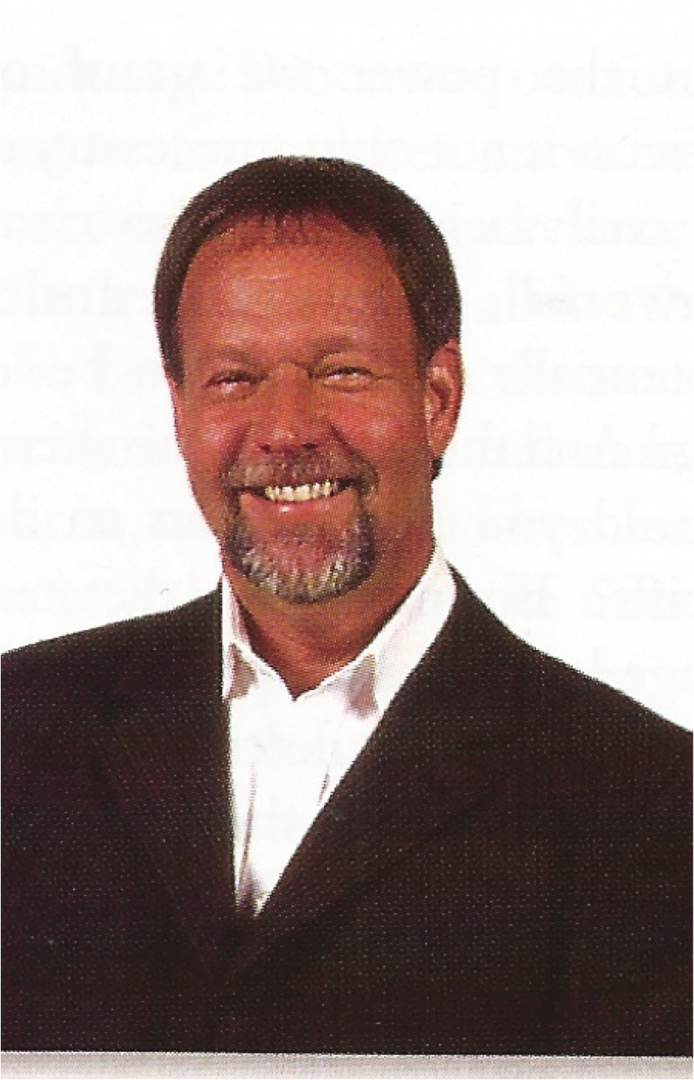
Giving Up On Government As An Agent For The Public Good…Is Not A Good Idea
When I first got into the commercial polling business, about 70% of Canadians held a somewhat favourable impression of politicians. Today, more believe in the devil or that Elvis is alive than hold this particular point of view. Now, I know all of us smirk knowingly, from time to time, when we consider the misfortune of our elected representatives. And while it’s always good fodder for cocktail chatter, we would be wise to remember that there are darker, and less benign consequences to our political cynicism.
A few years ago, as part of my TV Ontario program, I interviewed Naomi Klein. I asked her a question that truly puzzled me: How could it be that her generation, who were so obviously connected to the world, show no interest — in fact actively eschewed — politics and parliament? Her reply was simple and direct. She told me that in her entire adult life, she could not think of a single initiative that had emanated from government for which she was proud. Even accounting for Ms. Klein’s distaste for all things center-right, her response rocked me on my heels.
My generation associated government with grand initiatives of national enterprise — adopting Medicare, introducing pension and income security reform, repatriating the constitution and enshrining a Charter of Rights and Freedoms… or debating the possibilities of daring new endeavors like guaranteed annual income or using tripartism to vitalize democracy. I realized that anyone under the age of 35 really had no such touchstones and therefore no frame of reference to consider government as our central agent of societal advancement. And they had no such frame of reference not because they were disinterested slackers, but because there weren’t any. Right there and then, it dawned on me that public cynicism towards politics and politicians may actually be rational… that the population may have become persuaded that government is bad because, for a generation, we have been receiving bad government. That by lowering their performance to correspond to the public’s cynical expectations, we have offered ample and concrete evidence that governments are unable (or, as I will argue later, unwilling) to be productive agents of the public good.
Now historians and political scientists can debate forever how this has come about. My interest here is more with the implications than the cause of this state of affairs. Before we get there, I recognize that even at a Public Policy Forum Dinner there are some who might be asking: “Why should we even care about this?” “Who wants to return to the bad old days of excessive government intervention and decision-making by elite accommodation?” “Are we not better off…. more efficacious and self-reliant, less deluded…. by coming to the realization that we had misplaced our faith in governmental authority and instead have turned to a newfound reliance on ourselves and other nongovernmental agencies?” The disturbing aspect of this thought process, of course, is that it reveals an almost complete disconnect between public opinion and the output of public policy — an electorate who have come to believe that what government does has little bearing on their lives or impact on their community. It’s disturbing because when we come to view government as irrelevant, we cease to make demands on it to improve our lives. Even worse, we lose the capacity to use ethical considerations to judge the output of government and how we are being governed. From there, it is a small step before we stop even asking what kind of community we want and value. In the end, we run the risk of cascading toward a society of meaninglessness.
The fact is that no matter how some may try to persuade us otherwise, the state has power. The political process maintains a monopoly on the legitimate use of violence. Anyone of my vintage will never forget that snowy day in October 1970 when tanks rolled down the streets of Ottawa and Montreal. Parliament can declare that men are women or that dogs can vote. or that citizens can be arrested and incarcerated without charge. Only through the state do we allocate society’s scarce resources — without a word of debate or notice, tax policy can wipe out billions of dollars in income trust investments. To make this case is not a polemic or a wish on my part. This is an inherent part of the bargain we strike when we give up our unbridled, individual freedom in exchange for collective safety, stability and civil society When we enter into this agreement, we also give the state the authority to do evil — as well as good. And because this bargain is the essential contract between the governed and those who govern, it means that the state is not an abstraction and can never be irrelevant to its citizens — even if they believe or wish otherwise. For good or ill, the state and government can never be “them.” It is “us.”
American pastor and theologian Reinhold Niebuhr once cautioned: “Man’s capacity for justice makes democracy possible, but his inclination to injustice makes democracy necessary” Niebuhr’s point, of course, is that the power we grant our elected officials is not only a necessary cornerstone of civil society, it is also clearly far too powerful, important and therefore potentially dangerous, to be left without vigil. And then there is the alternative. How would you like farmers to decide grain tariffs? Businesses to dictate minimum wage laws? Banks to set interest rates? Or Greenpeace to determine forest policy? Through politics, these groups can come together and make their voices heard and their positions known. But in the end, it must be government — as the crucible of consensus — that takes these divergent positions and needs, and forges a common cause around the public interest. So how can this cycle be broken? Invariably, it strikes me that ending this spiral to the bottom will only begin when those who believe in the political system and who care about the character and quality of those whom we choose to govern us, stand up and start defending the process. It requires that people become not simply defenders of what for the public has become an indefensible status quo, but champions and advocates for reforming the system. From everything I can discern, Canadians are yearning for an articulation of a new and innovative role for government.
This is exactly what the Public Policy Forum and Ian Green — the forum’s Chair in Public Service Governance — hope to start with their Canada’s Public Service in the 21st Century project. The population knows the old roles do not meet either their sensibilities or the new realities of the world in which they live. Innovative public policy should follow logically out of this wholesale re-evaluation of government’s purpose in modern-day society. It may even hold the key to revitalizing civic engagement and re-legitimizing government. Look at the state of health care policy. This is an issue that has topped the list of Canadians’ concerns for over a decade; yet it has become mired in a tar baby of inaction, where most avenues of reform have been roadblocked by a tyranny of political correctness. Decision-making paralysis has led to further deterioration in the system, thereby providing more evidence that governments are unable to protect this sacred trust. If health care were an isolated exception, however, the situation would not be so dire. But the same atrophy applies to a litany of other issues as well. Monetary and fiscal policy is guided by government-collected financial data, the most fundamental of which is the measure of Gross Domestic Product.
Yet in the calculation of GDP, breast cancer and oil spills are credited to the positive side of the ledger while homemaking or volunteering at your community soup kitchen do not even tally in our national accounts. Roy Romanow, the Atkinson Foundation and Statistics Canada are setting out to create a new Index of Wellness that will provide a more accurate measure of progress that reflects the real values of Canadians and the kind of society we want. We should applaud and lend support to their efforts. We revel in our multicultural heritage — and rightly so. But anyone who rides the Toronto subway knows that our immigration is qualitatively and quantitatively different today than 40 years ago, when multiculturalism policy was first framed. Today, the percentage of foreign-born is the highest it has been in almost 80 years. For the first time in our history, Canada has become a destination of predominantly visible minority immigrants. This massive alteration in our patterns of immigration has warranted nary a word of discussion in terms of its implications for multicultural policy.
The late Bernard Ostry – one of the original architects of multiculturalism -called for a new Royal Commission to bring policy more in line with this new reality, just before his passing. We should take up his challenge and not shirk from it simply because of the enormity of the task Shirking is precisely what appears to have happened to the so-called cities agenda. When the Fathers of Confederation framed the British North America Act, 80% of Canada was rural. Today, 80% of Canadians live in urban centers, 50% reside in our eight largest cities and over 70% of all of the nation’s new immigrants settle in Toronto, Montreal and Vancouver. Yet our 140-year-old constitution orphans cities and reduces them to nothing more than “creatures of the provinces” without any revenue base, save property taxes, to meet the rapacious demands of repairing crumbling infrastructure, housing the homeless, running mass transit and providing the social services that make cities livable.
The notion that a 5-cents-a-litre gasoline tax will solve this fiscal imbalance would be laughable if the plight of our cities were not so palpable and urgent. Step outside of our borders and the absence of innovative thinking in our foreign policy is just as evident. It has been over half a century since Lester Pearson won the Nobel Peace Prize and enshrined the notion of Canada as a Middle Power. Anyone who happened to note that the ColdWar was over may ask: “Who exactly is it we want to be in the middle of today?” With one hegemonic power in the world today, the idea of an “honest broker” is moribund. By clinging to this outdated ideal, the moral authority Canada was able to accumulate in the past has diminished and we relegate ourselves to a reactive, minor player on the world stage. The entire discussion invariably forces us back to our starting point — namely, the citizen’s growing detachment from politics, politicians and governments. We can have a vigorous debate around innovative approaches to public policy… but who is going to conduct it? Where are our future leaders to come from, when those who value their accomplishments and character most are the least likely to allow their reputations to be sacrificed on the altar of public cynicism? Much like substantive policy questions, we need to address – and to bring out into the open — the malaise that has infected our political process and contaminated our faith in government. In this vein, it is also time to turn our attention to some creative thinking and bold initiatives to restructure the political system itself. We know from experience what hasn’t worked. Public relations campaigns have been launched to encourage young people to vote. Limits and constraints that narrow their discretionary latitude have been heaped upon our leaders. The foibles, shortcomings and every misstep of our elected leaders are recorded in minute detail every day by our national media. Far from reversing or diminishing our cynicism, however, these efforts have had virtually no effect and, in some instances, have actually served to exacerbate and reinforce our mistrust. What hasn’t been tried, but is now being suggested with greater frequency, is a structural change in our political and electoral system. Advocates of proportional representation, for example, claim it would more accurately mirror popular support.
While I doubt a debate around electoral reform can hurt, I equally doubt that Israelis or Italians, who have adopted this system, feel any better about their governments than those nations that haven’t. Similarly, some argue that more free votes and a greater role for individual Members of Parliament would give local representatives more authority and the license to reflect their own views, thereby giving them a more distinctive profile and accountability with their constituents. The problem is that, as long as we want to maintain a form of responsible, parliamentary government, MPs cannot vote consistently against Cabinet, and Cabinet members certainly cannot vote against their colleagues. Rather than these timorous, piecemeal attempts at reforming a small part of the system, it is probably time for a wholesale re-evalutation. In fact, everything I know about public opinion and the working governments tells me that if we truly want to create a more cohesive and workable democracy, then we must both make structural and systematic changes aimed at elites, as well as cultural changes aimed at the masses. At the mass or cultural level, the main problem is that our very distance and detachment from our leaders, and from one another, allow us to form and hold views that do not require scrutiny or evaluation. Look at the cultural shift in America that was produced by the Supreme Court decision of Brown vs. the Board of Education. That decision, more than all the sermonizing from American liberals about the corrosive effects of racism on American life, or the activism of civil rights leaders, forced blacks and whites to integrate. It was a change in experience, not beliefs or values, that changed the culture.
The most fundamental step in altering behavior may be the introduction of compulsory voting. Turnout has fallen steadily since 1988 and is especially low among newly eligible voters, fewer than 30% of whom voted in 2006. Making voting compulsory — as is the case in Australia or Greece — forces every citizen into at least some engagement with the system. Creating community, creed and a common sense of destiny also requires citizen contact. There was a reason the ancient Greeks built theatres or early architects made the town square the centerpiece of their city plans. By strengthening the avenues of cultural distribution, public spaces can be combined with art and ideas to advance citizen interaction and build a stronger sense of civic virtue. Public sponsorship of festivals, reading series, debates and town-hall meetings can all be used to inveigle individuals out of their rec rooms and into the streets, where citizens will gain a greater feeling of “ownership” of their community and its problems.
Technology is another powerful tool we are barely using. Surely if Wikipedia can develop an encyclopedia in five years that is 50% larger and 98% as accurate as the one it took Oxford 107 years to create, we can do more than invite our citizens to use an HB pencil to mark an “X” on a piece of paper once every 4 years as their principal means of participating in the political process. Using Web.2 networking software to simulate public policy alternatives, individuals could develop a citizen-based defense budget or old age pension plan. Such “e-democracy” initiatives could facilitate an immediate feedback loop between elected representatives and their constituents on current issues of the day. Not only would this give citizens more input into government decision-making, but there is every reason to believe that if individuals can use technology to learn more about the consequences of their beliefs, over time they will come to make better decisions. Even with more structured electoral participation, cultural democracy and technological innovation, however, real change won’t happen unless citizens also come to believe that their elected representatives are not only responsive, but can actually do something — that they are empowered to act on the demands of those they represent. Today, when most voters view their elected representatives as their inferiors, and virtually all have become conversant with current events through the explosion of broadcast and digital media, it is probably prudent to rethink the old Burkian model, where our elected representatives serve as unrestrained delegates, and replace it with a more integrated and less distant “partnership” between leaders and voters. Entertaining ideas like recall, referendum and initiative may harness the citizen’s own sense of day-to-day efficacy and give our representatives the tools to actually make changes in their constituents’ lives. I don’t think it’s a mere coincidence that voter turnout in the 2006 federal election was 85% in the tiny province of Prince Edward Island, or that more than 90% of voters in Cape Breton Island knew the name of their local ME Not only are politicians familiar faces and considered neighbors, but citizens also have a material understanding of the consequences of their political choices in smaller communities in this part of Canada. Why not grant elected representatives real power to intervene on behalf of, and to deliver services directly to, their constituents? In effect, this would amount to making each local MP the chief operating officer of the government in his or her community. Government and Cabinet would still make policy, but it would be administered locally and overseen by elected constituency politicians. In short, the goal here would be to focus less on the inward influence of representatives in Parliament and more on the outward influence they wield with voters in their ridings.
(Yale Political Science professor) Robert Dahl gave us one of our most classic and enduring definitions of politics: the process of determining “who gets what, when and how” But for those of us who have toiled in the trenches of politics, it is also much more than that. Politics need not be merely distributive… it can also be productive. This view maintains that politics is not a zero-sum game, where my benefit becomes your liability. Politics — by its nature — is the vehicle we use to uplift and advance whole communities and societies towards a better end. Now, I know that may be a lofty and an uncommon belief to hold today, but I also truly believe, it is one that we abandon at our peril.
By: Allan Gregg












